PDF chapter test TRY NOW
We find plastics everywhere around us. The increasing consumption and manufacturing of plastics need solutions for their disposal.
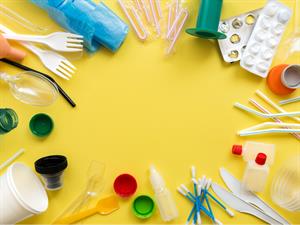
Plastics around us
Organic waste such as peels of vegetables, fruits, animal waste etc., are a rich source of nutrients. These materials get decomposed by bacteria present in the soil and are known as biodegradable waste.
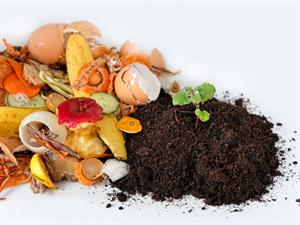
Biodegradable waste
Plastics are non-biodegradable waste as bacteria do not decompose them in the soil, which is the major cause of pollution. Most plastics are manufactured for one-time use and cannot be recycled, so they end up in oceans, land etc. This is due to the wrong disposal method of plastics.
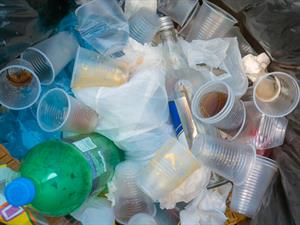
Non-biodegradable waste
Plastic waste finally ends up being recycled, incinerated, landfilled, dumped or littering our environment.
Plastic waste in landfills, dumps or the environment: \(79\%\)
Plastic waste been incinerated: \(12\%\)
Recycled plastic waste: \(9\%\)
Plastic waste in landfills, dumps or the environment: \(79\%\)
Plastic waste been incinerated: \(12\%\)
Recycled plastic waste: \(9\%\)
Let us now see the \(5\)R principle for efficient use of plastics. \(5\)R principle are
- Refuse (avoid)
- Reduce
- Reuse
- Recycle
- Recover (Compost and Incinerate)
Refuse:
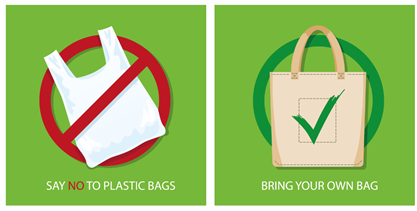
Say no to plastic
Please avoid the use of plastics as the word 'refuse' suggest itself. Use bags made from natural fibre such as cotton, jute, flax etc.
Reduce:
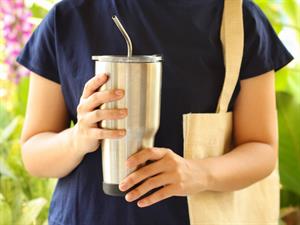
Reduce the usage of plastics
Reducing the production and usage of plastics will bring a drastic change to our environment. The alternative source of plastic helps in improving the environment.
Reuse:
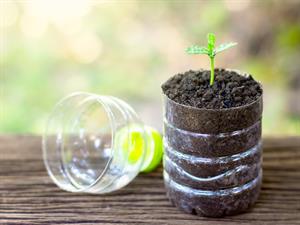
Plastic bottles are used for growing plants.
Creatively reusing plastic will help in reducing the pollution caused by plastics. The plastic products can also be used repeatedly; for instance, plastics bags could be used again if we go out shopping.
We can also give away the products made of plastics if we do not feel of using them again, for instance, toys.
Recycle:

Plastic being recycled into useful products
The better way to recycle plastic is according to its resin code. We know that thermoplastics can be recycled, whereas thermosets are not. This recycling process is challenging because they are mixed with different types of plastics, making it difficult to process. Also, the heating results in the melting of plastics during recycling, making it to lose its quality. This is known as downcycling. Recycling plastic waste cannot be the only solution to plastic pollution.

Waste disposal with electric incinerators
The waste in solids is converted into electricity, whereas the compost is through thermal and biological means. The combustion of plastic is bad for the environment as it will release harmful gases.
Burning plastics at high temperatures in incinerators, and trapping the gases, and collecting toxic ash is widely used to produce energy.
Recycling plastics
